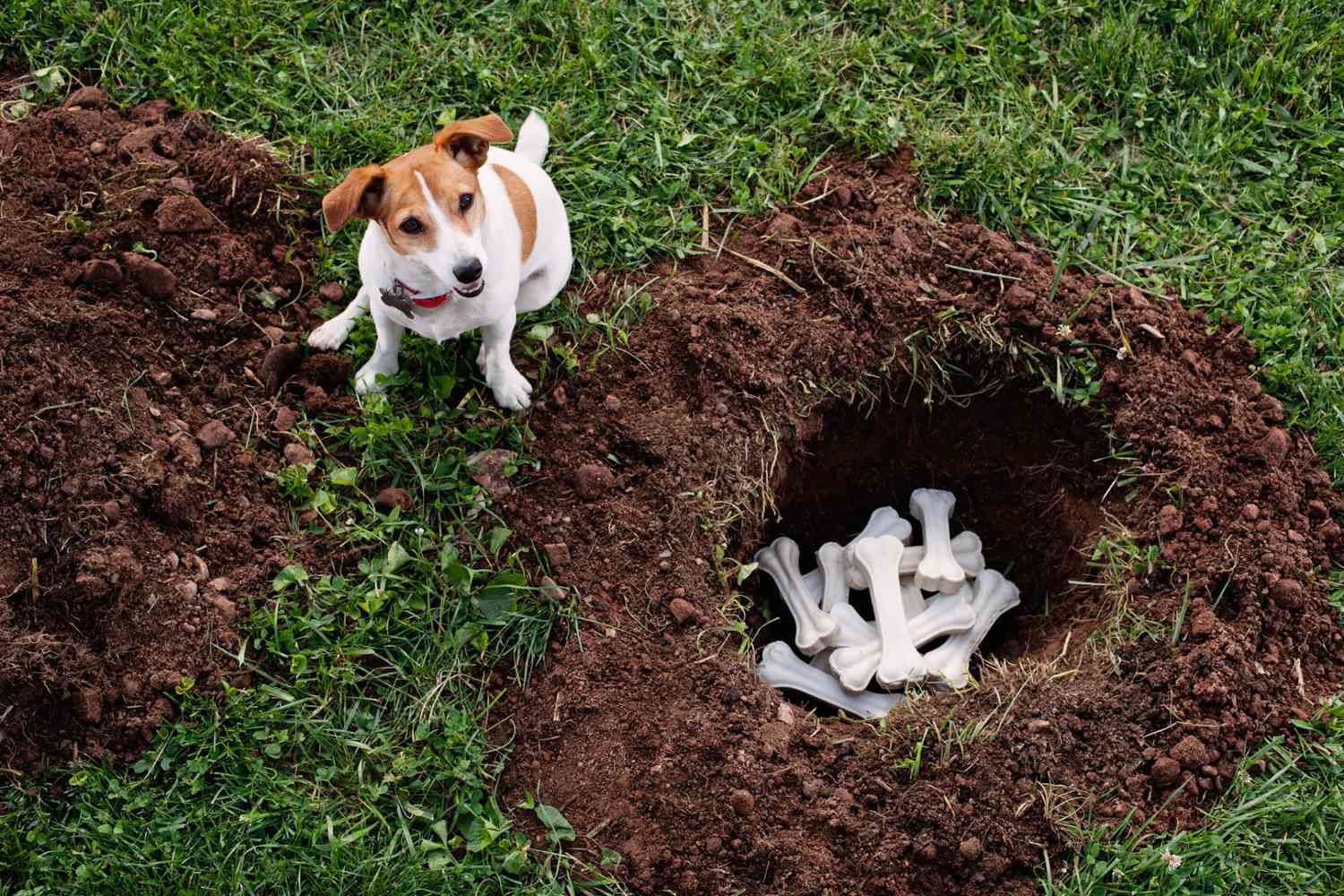Key Takeaways:
- 1. Contact a veterinarian for guidance: When your dog dies at home, it is important to reach out to a veterinarian for advice on what steps to take next.
- 2. Handle your dog's body with care: Treat your dog's body respectfully by gently wrapping it in a clean blanket or towel and placing it in a cool area until arrangements can be made.
- 3. Consider burial or cremation options: Decide whether you would like to bury your dog in a pet cemetery or have them cremated. Research local options and choose the one that aligns with your preferences.
- 4. Seek support from loved ones: Losing a pet can be emotionally challenging, so lean on family and friends for support during this difficult time. They can provide comfort and understanding as you grieve.
- 5. Take time to heal and remember your dog: It is essential to allow yourself space and time to mourn the loss of your beloved companion. Consider creating a memorial or finding ways to honor their memory that bring you solace.
Introduction:
Losing a beloved pet is one of life's most heartbreaking experiences. When your furry friend passes away at home, it can be overwhelming to know what steps to take next. In this guide, we will explore the practical and emotional aspects of dealing with the loss of your dog. By understanding how to handle this difficult situation, you can find solace and support during this challenging time.
While it may not be a pleasant subject to delve into, understanding what to do if your dog dies at home is essential for every pet owner. The knowledge you gain from this guide will empower you to navigate through the grieving process with grace and dignity. It will also provide you with valuable insights on how to honor your dog's memory and find closure.
Now, let's dive into the topic at hand: What To Do if Your Dog Dies at Home. We'll explore step-by-step instructions on how to handle the immediate aftermath, including contacting a veterinarian or animal control if necessary. We'll also discuss different options for saying goodbye to your furry companion in a meaningful way.
Did you know that according to recent studies, around 68% of households in the United States own a pet? That means millions of people face the heartache of losing their four-legged friends every year. By learning how to cope with such a loss, you join a community of pet owners who have experienced similar pain and found ways to heal.
In conclusion, while no one wants to think about their dog passing away, understanding what steps to take when it happens can bring comfort during an otherwise distressing time. By exploring this topic further, you will gain valuable knowledge that will help you navigate through grief and honor your beloved companion in a way that feels right for you. Let's embark on this journey together and discover ways to find peace amidst sorrow.
Signs that Your Dog Has Passed Away at Home
Recognizing the Signs of a Deceased Dog
When your beloved dog passes away at home, it can be a heartbreaking experience. It's important to be able to recognize the signs that your dog has passed away so you can begin the grieving process and make necessary arrangements. Some common signs include:
- No breathing or movement: If your dog is unresponsive and not breathing, it may be a sign that they have passed away.
- Cold body: When a dog dies, their body temperature drops rapidly. If your dog feels cold to the touch, it could indicate that they have passed away.
- Lack of response: Your dog may not respond to stimuli such as touch, sound, or food if they have passed away.
Coping with the Loss of Your Dog
The loss of a beloved pet can be extremely difficult to cope with. It's important to allow yourself time to grieve and process your emotions. Here are some ways you can cope with the loss of your dog:
- Allow yourself to feel sad: It's normal to feel sadness and grief when your dog passes away. Give yourself permission to mourn their loss.
- Talk about your feelings: Share your emotions with friends or family members who understand and support you.
- Create a memorial: Consider creating a memorial for your dog by planting a tree or making a scrapbook of memories.
Coping with Sadness and Grief When Your Dog Passes Away
Understanding Sadness and Grief after Losing Your Dog
Losing a dog can be a deeply emotional experience, and it's natural to feel sadness and grief. It's important to understand that everyone grieves differently and there is no right or wrong way to cope with the loss of a pet. Here are some common emotions you may experience:
- Sadness: Feeling sad is a normal response to losing your dog. You may feel a deep sense of loss and miss their presence.
- Guilt: It's common to feel guilty after your dog passes away, questioning if you could have done more or made different choices.
- Loneliness: Your dog was likely a source of companionship and comfort, so feeling lonely without them is expected.
Coping Strategies for Dealing with Sadness and Grief
While everyone copes with grief differently, there are some strategies that may help you navigate through the sadness and grief after losing your dog:
- Talk about your feelings: Expressing your emotions with trusted friends or family members can provide support and comfort.
- Engage in self-care: Take care of yourself by getting enough sleep, eating well, exercising, and engaging in activities that bring you joy.
- Seek professional help if needed: If your grief feels overwhelming or persists for an extended period, consider reaching out to a therapist or counselor who specializes in pet loss.
Who to Call or Notify When Your Dog Dies at Home
Calling a Veterinarian
When your beloved dog passes away at home, it is important to contact a veterinarian as soon as possible. They can provide guidance on what steps to take next and may be able to offer assistance with the handling of your dog's remains. Some veterinarians even offer after-hours services for emergencies like this.
Notifying Family and Friends
In addition to contacting a veterinarian, it is essential to inform your family and close friends about the loss of your dog. Sharing your grief with loved ones can provide comfort during this difficult time. They may also be able to offer support or help you make arrangements for your dog's final resting place.
Creating a List of Emergency Contacts
To be prepared for such unfortunate events, it is wise to have a list of emergency contacts readily available. This list should include the phone numbers of nearby veterinarians, pet crematoriums, and animal control agencies. Having this information easily accessible will ensure that you can quickly reach out for assistance when needed.
Remember, dealing with the death of a pet is never easy, but reaching out for help and support can make the process more manageable.
Burying Your Dog in Your Backyard: Guidelines to Follow
When considering burying your dog in your backyard as their final resting place, there are some guidelines you should follow:
Check Local Regulations
Before proceeding with backyard burial, it is crucial to check local regulations regarding pet burials. Some areas have specific rules or restrictions in place that prohibit burying animals on residential properties. Contact your local government or animal control agency to ensure compliance with any applicable laws.
Select an Appropriate Location
Choose a suitable location in your yard for your dog's burial. It should be away from any water sources, such as wells or streams, to prevent contamination. Additionally, consider a spot that is unlikely to be disturbed in the future, ensuring a peaceful resting place for your beloved pet.
Preparing the Burial Site
Dig a hole that is at least three feet deep to ensure proper burial. This depth helps prevent scavengers from disturbing the remains. Place your dog's body gently into the hole and cover it with soil, creating a mound that will settle over time.
By following these guidelines, you can create a respectful and loving final resting place for your cherished companion.
Alternative Options for Burying Your Dog if Not Allowed in Your Area
If burying your dog in your backyard is not allowed due to local regulations or other reasons, there are alternative options available:
Pet Cemeteries
Consider burying your dog in a pet cemetery. These dedicated spaces provide a peaceful environment where you can lay your furry friend to rest. Pet cemeteries often offer various services such as individual grave markers and memorial plaques.
Cremation Services
Opting for cremation is another alternative when traditional burial is not possible. Many pet crematoriums offer individual cremations where you receive only your pet's ashes back. You can then choose to keep the ashes in an urn or scatter them in a meaningful location.
Memorializing Your Dog
Regardless of the method chosen, it is essential to create a meaningful memorial for your beloved pet. Consider planting a tree or flowers in their honor or placing a personalized plaque or stone marker at their resting place. These acts of remembrance can bring comfort and help keep their memory alive.
Remember, even if you cannot bury your dog at home, there are still options available to honor their life and create a lasting tribute.
Creating a Meaningful Memorial for Your Beloved Pet
Losing a beloved pet is undoubtedly heartbreaking, but creating a meaningful memorial can help you honor their memory and find solace in the grieving process. Here are some ways to create a special tribute:
Displaying Photographs
Gather your favorite photographs of your dog and create a dedicated display in your home. Arrange them in frames or create a photo collage that showcases happy memories spent together. This visual reminder will bring comfort and allow you to reminisce about the joyous moments shared.
Writing a Tribute or Letter
Put your feelings into words by writing a heartfelt tribute or letter to your departed pet. Expressing your love, gratitude, and cherished memories can be therapeutic. Consider reading it aloud at their burial site or keeping it as a personal keepsake.
Crafting Personalized Keepsakes
Crafting personalized keepsakes can provide comfort and serve as tangible reminders of your beloved pet. Create a scrapbook filled with pictures, paw prints, and mementos, or design custom jewelry featuring their name or image. These unique creations will hold sentimental value for years to come.
By engaging in these memorial activities, you can pay tribute to the unconditional love and companionship your dog provided throughout their life.
Guilt and Wondering if You Could Have Done More When Your Dog Dies at Home
Experiencing guilt and wondering if you could have done more when your dog passes away at home is natural but remember that you did everything within your power to care for them. It is important to acknowledge these emotions while also finding ways to cope:
Seek Support from Others
Reach out to friends, family members, or support groups who have experienced similar loss. Sharing your feelings of guilt and self-doubt can help alleviate the burden you may be carrying. Others who have been through the same situation can provide reassurance and understanding.
Focus on the Positive Memories
Instead of dwelling on what could have been done differently, shift your focus to the positive memories you shared with your dog. Remember the love, joy, and happiness they brought into your life. Celebrate their life by cherishing these moments rather than dwelling on any perceived shortcomings.
Practice Self-Compassion
Be kind to yourself during this difficult time. Understand that you did everything you could with the knowledge and resources available to you. Remind yourself that dogs are resilient creatures, and your love and care provided them with a happy life. Allow yourself to grieve and heal without blaming yourself.
Remember, grieving is a personal process, and it is normal to experience a range of emotions. Be patient with yourself as you navigate through this challenging time.
In conclusion, if your dog passes away at home, it is important to remain calm and seek support from family or friends. You can handle the situation by contacting a veterinarian or a pet cremation service to respectfully say goodbye to your beloved pet.
What to do if dog passes away at home?
After confirming that your dog has passed away, the next course of action is to contact your veterinarian's office. The veterinary office will handle the removal and disposal of your dog's body, or store it temporarily if you plan on having a cremation or burial. They may also be able to provide information about pet crematories or mobile veterinary services.
What to do if your dog dies in the middle of the night?
If you are unable to reach your regular veterinarian, you can try contacting a 24-hour emergency office during nighttime or holidays. These offices may have connections to other services such as pet crematories or mobile vet services, who can assist you in handling your pet's body.
Should you let your dog passed away at home?
Opting to let your dog pass away in a familiar setting at home may be less distressing for them, although it can be challenging for you to witness. On the other hand, many veterinarians offer the option of performing euthanasia through home visits, eliminating the need to go to the veterinary clinic.
What not to say when a pet dies?
Avoid making comments like "Now it's time to get a new pet!" or asking when someone is getting another puppy or kitten after they have experienced a loss. It is insensitive and inappropriate. It is important to allow people to grieve and heal before they are ready to invest their time, love, and energy into another pet.
Do dogs pass away in their sleep?
Although it is possible for some pets to peacefully fall asleep and pass away naturally, this is not a common occurrence, similar to humans. Some pet owners are afraid of their pet dying alone, while others are not. In some cases, we are requested to assist families in navigating the natural dying process with their pets.
What happens hours before a dog dies?
When dogs are close to death, it is normal for their breathing patterns to alter or for them to experience difficulty in breathing. This shift may occur a few hours or days before their death and indicates that their body is gradually shutting down.

















